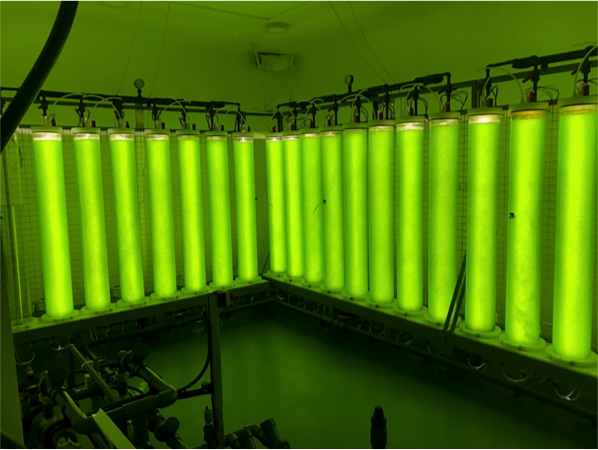Algae cultivation in plastic tubes
Your B2B partner for plastics extrusion and processing
Algae cultivation in plastic tubes
Photobioreactors as the raw material source of the future
Food supplements, medicine, pharmaceuticals, cosmetics, fuel or CO2 fixation: the cultivation of microalgae offers many interesting possibilities. Researchers even suspect that central problems of the future can be solved with algae. One challenge here is cultivating the organisms. How can this task be mastered?
Plastic tubes as photobioreactors offer the best conditions for this. We produce PMMA tubes in various dimensions and diameters for this purpose. Find out more about the application and product advantages here or contact us directly for a personal consultation.
Photobioreactors for algae cultivation
Algae need light and nutrients for their growth, especially CO2, which serves them as a carbon source. As aquatic organisms, they also need salt or fresh water as a living environment, depending on the species.
This results in high requirements for algae cultivation. In particular, cultivation in open waters is often not practical for various reasons. On the one hand, the organisms are susceptible to disturbances such as changes in pH, and on the other hand, contamination of the open water is a major problem. Artificial algae farms, known as bioreactors, have proven to be much more effective. In water-filled tubes, microorganisms grow under nearly ideal conditions. Factors such as the CO2 saturation of the water, nutrients, temperature and salinity can be precisely adjusted.
In addition, the pipes offer a much larger surface area in relation to their volume than lakes or ponds. This is a decisive advantage, because light reaches the algae via the surface. This enables them to carry out photosynthesis, i.e. to convert CO2 and water into oxygen and biomass.
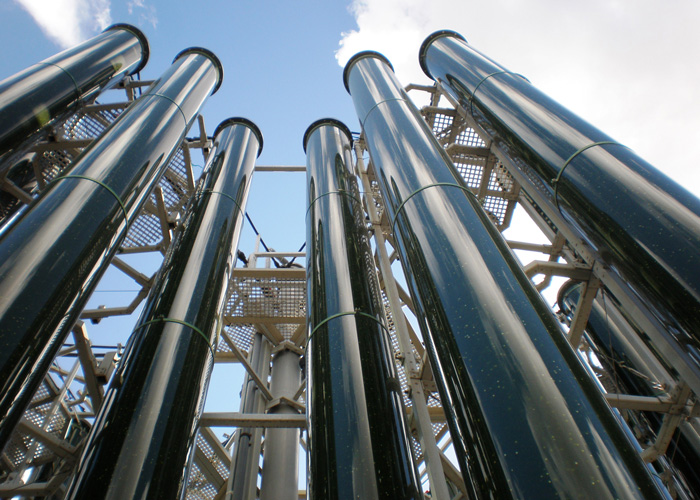
Plastic tubes provide numerous advantages
In detail, the next question is how photobioreactors are sized and manufactured. One approach uses glass tubes because the material has high transmission values and is easy to clean. However, glass tubes for algae cultivation have several disadvantages. The material is very heavy, expensive and prone to breakage. A much better solution is plastic tubes made of PMMA.
PMMA plastic is also known as acrylic glass, which already indicates its properties. The thermoplastic is 1.9 times lighter than glass. In addition, PMMA from our production is highly transparent (about 92% transmission), so that a maximum of light is available for photosynthesis. Other important advantages are:
Food suitability
Freedom from harmful substances is particularly important in the production of high-quality foods. PMMA is approved for contact with foodstuffs, so the photobioreactors are suitable, for example, for obtaining food supplements or preparations containing omega-3 fatty acids.
Flexibility
We manufacture PMMA tubes in many variants with diameters from 30 to 500 mm and lengths of 10 meters and more.
Experience
We have a deep know-how in the production of plastic tubes made of PMMA. We are happy to incorporate this into the production of new components. Especially for vertical algae bioreactors, for example, we manufacture tubes with increasing wall thickness from top to bottom to compensate for the increasing pressure in the lower area.
Cost Efficiency
PMMA tubes for algae cultivation are often cheaper to purchase than glass. This makes many plants economical that would otherwise not be feasible. For the same reason, PMMA reactors pay for themselves much faster, which is a decisive plus point with investors.
Serviceability
PMMA inherently shows high resistance to biofouling, i.e. the colonization of the surface with algae or debris, which reduces the need for maintenance.
Robustness
PMMA also impresses with its great robustness. The material can additionally be tuned by us to provide even greater impact resistance
Algae are a versatile source of raw materials
Research with algae began several decades ago. Scientists are fascinated by the growth rate of aquatic organisms. Compared to plants on land, they can fix CO2 much faster and form biomass from it. This can be explained, among other things, by the constant conditions in the water and the high cell division rate of blue-green algae and similar microorganisms.
This is not the only advantage that algae offer. Since very many different species are known that can be used in photobioreactors, the possible applications are manifold. Among other things, algae serve as:
- Source of raw materials for food supplements
- Biomass carrier
- Component of cosmetic and medical products
- absorber of CO2
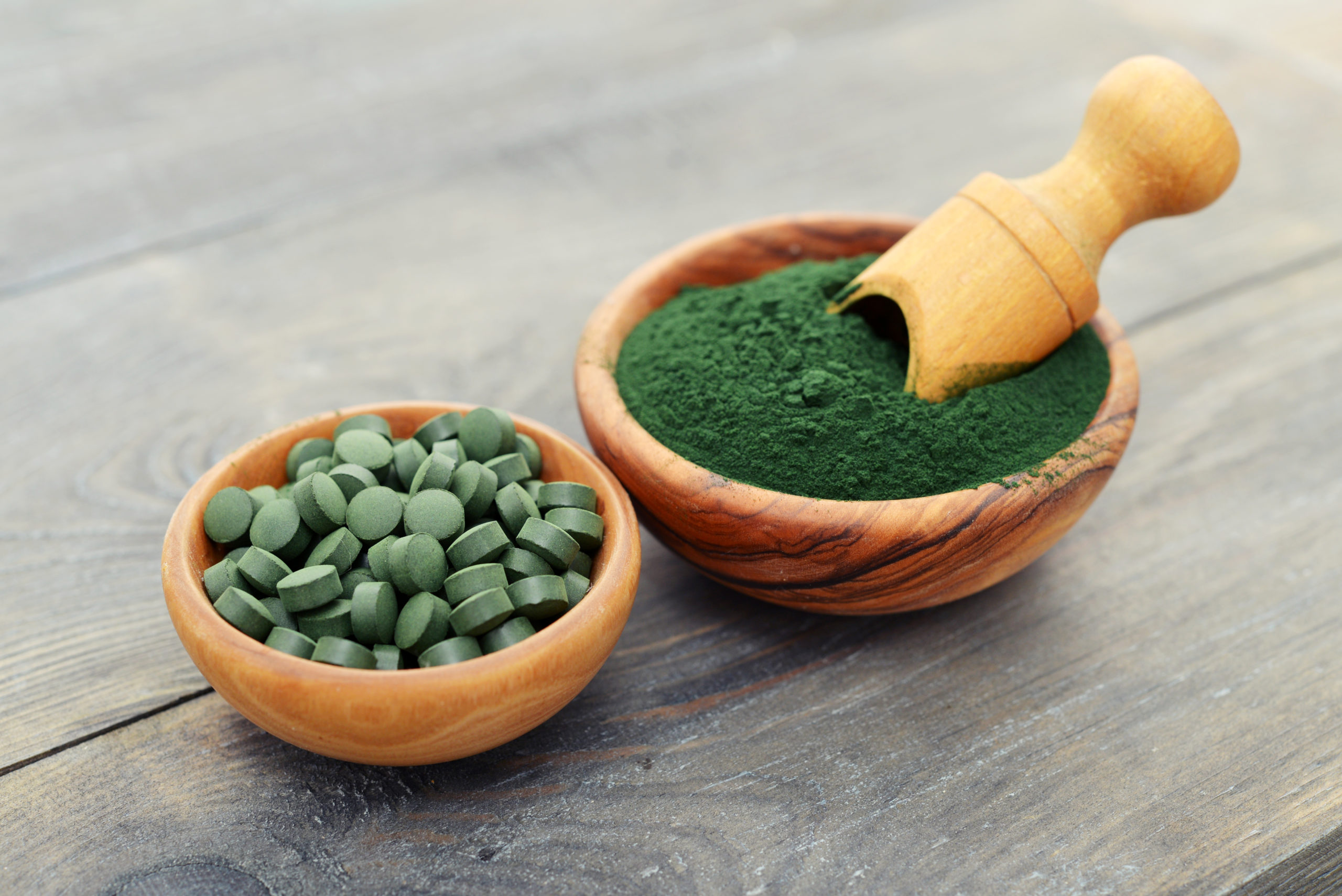
As an example, two interesting large-scale applications will be examined in more detail: Algae as CO2 storage and for the production of food supplements.
Algae for the production of omega-3 fatty acids and other nutrients
Omega-3 fatty acids are among the essential fatty acids. This means that they are essential for life and cannot (in part) be produced by the body itself. A high-quality source of these fatty acids in the diet is fish.
Interestingly, fish in turn cannot produce these fatty acids themselves either, but absorb them from algae. This has led to the idea of obtaining this high-quality nutrient directly from microalgae such as spirulina, chlorella, dunaliella, ulkenia or schizochytrium. With success: today there are various preparations that are offered in stores, for example, as algae oil or as omega-3 tablets. They are suitable as dietary supplements and are selling increasingly well.
With microalgae cultivation, other food supplements are also accessible, for example for the supply of vitamin B12 or iodine. In principle, it is advantageous here to cultivate the algae in photobioreactors in order to be able to support and monitor growth in the best possible way and to ensure repeatable high quality.
Algae as CO2 reservoir
Another exciting property of algae is their ability to fix large amounts of CO2. The setup of a corresponding plant is relatively simple: exhaust gases, for example from a power plant, are passed through a tubular reactor containing algae suspension. The organisms absorb CO2 and convert it into biomass. Oxygen is released in the process.
This process can be operated with different objectives. If the biomass is dried and deposited, CO2 can be permanently bound. This allows the content of CO2 in the air to be reduced.
More often, however, the biomass itself is used as a raw material, for example for biofuel. This is converted back into CO2 during combustion, but unlike the use of fossil fuels, the CO2 balance here is neutral: no further climate-damaging gas is released into the atmosphere.
ATHEX has been manufacturing high quality plastic tubes for over 20 years
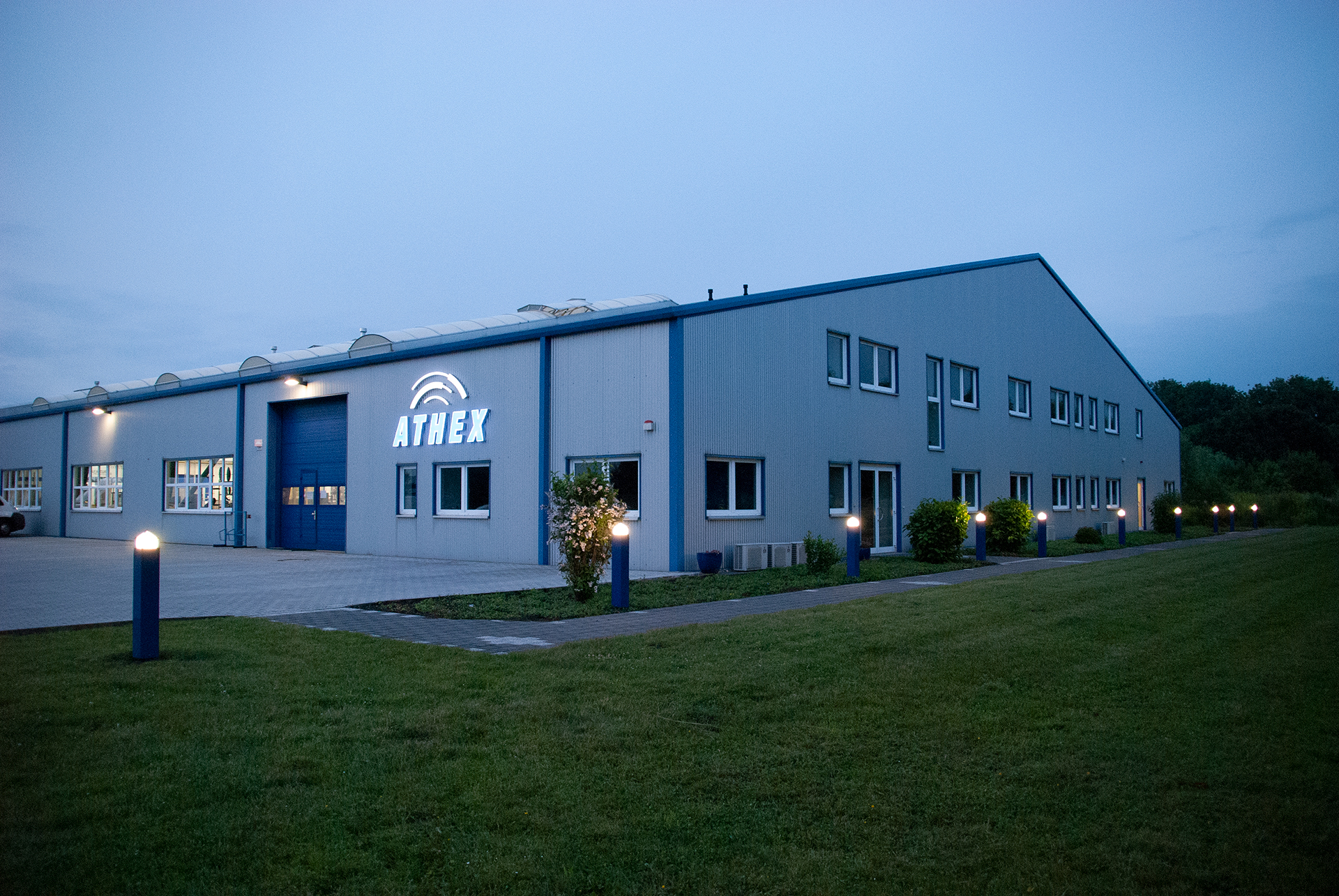
We are manufacturer of PMMA products with many years experience. More than 100,000 meters of tubes leave production every year. These are often highly specialized for specific applications, such as antibacterial coatings or materials optimized for LED lights. PMMA tubes are also available specifically for use in algae bioreactors. These are suitable for different reactor architectures.
Probably the best known design is the vertical tube reactor. This technology is well researched and is suitable for both small and large-scale plants. A key advantage is that a lot of biomass can be produced in a small area.
In addition, vertical reactors are self-contained systems. The water cannot evaporate, which means that they can also be installed in arid regions, even in deserts.
It is particularly exciting that algae reactors are currently being tested in many different sizes. The dimensioning results in each case from the specific requirements of the technology. Small reactors are used to improve the air in buildings or to conduct research on a micro scale. Large algae reactors are used to produce nutrients such as omega-3 fatty acids. The largest units are currently used to capture CO2 with high efficiency.
ATHEX supplies tubes with diameters ranging from 30 to 500 millimeters. This makes the PMMA tubes from our production suitable for a wide variety of reactors.
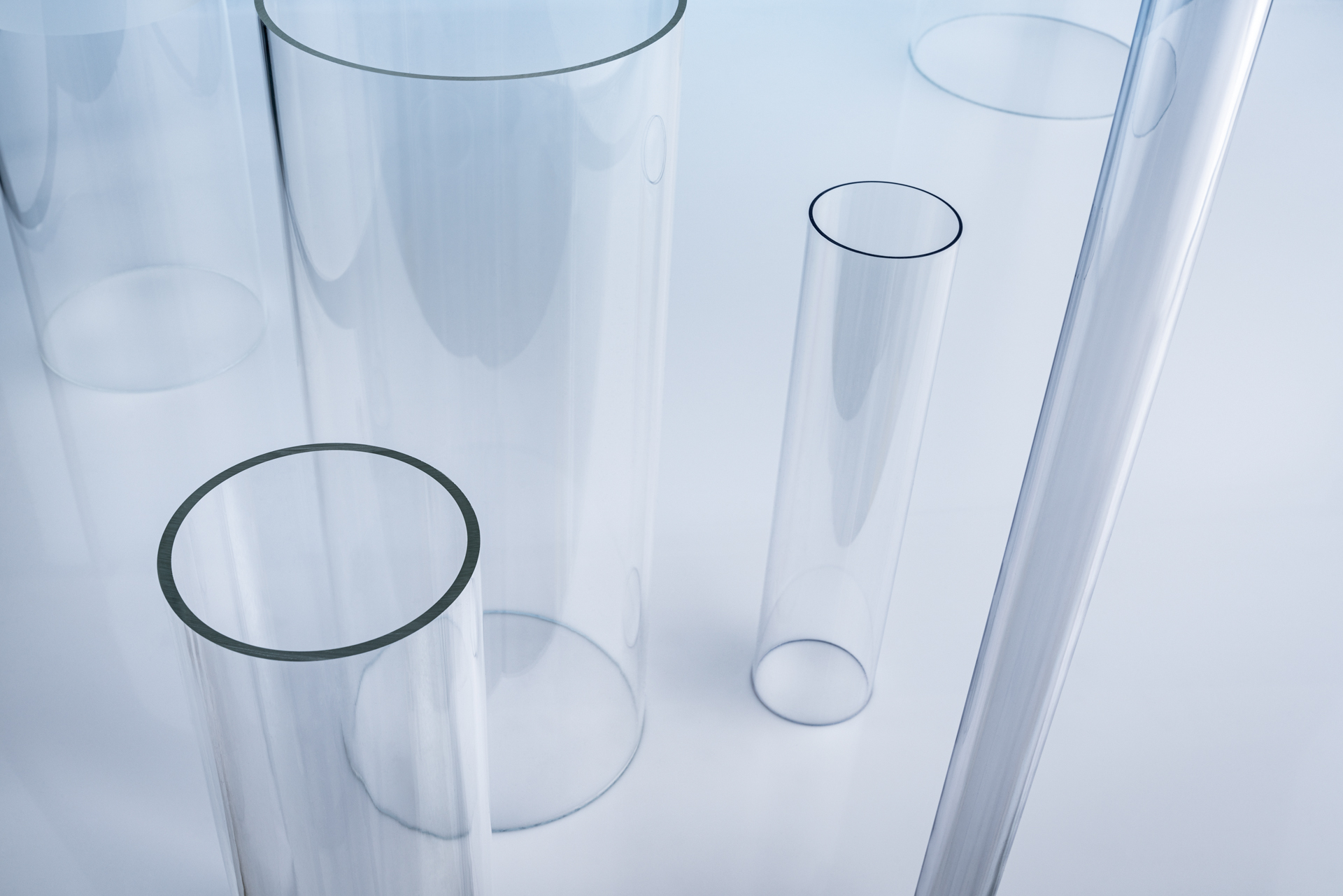
Experience in the field of bioreactor construction
Tubes are our daily business, the construction of bioreactors for microalgae cultivation is one of the main focuses of our company. Together with partners, we have realized a large number of plants that today provide valuable raw materials.
Over time, we have accumulated a wealth of experience concerning the use of PMMA plastic tubes for algae reactors. We would be happy to incorporate this know-how into the planning and realization of your project.
In addition, we are able to customize tubes at the factory. This can be a decisive advantage, especially when dimensioning vertical tubular reactors. Especially for this application, we have refined our technology, for example, to vary the wall thickness along the tube, which results in cost advantages due to the material savings.
Contact us at any time if you are planning to build a photobioreactor. We are looking forward to support you in the realization.
Contact us
We collect your data for the purpose of carrying out your contact request. The data processing is based on Article 6 (1) f) DSGVO. Our legitimate interest is to answer your inquiry. The data will not be passed on to third parties. The data will be deleted as soon as they are no longer required for the purpose of their processing. You have the right to object to the use of your data for the purpose of contacting you at any time.
Please fill out the fields completely so that we can process your request optimally and as quickly as possible.
Runtestr. 50
59457 Werl
Tel: +49 (0) 2922 878 38-223
E-Mail: sales@ATHEX.de
Webdesign by Diestelkamp Consulting GmbH

